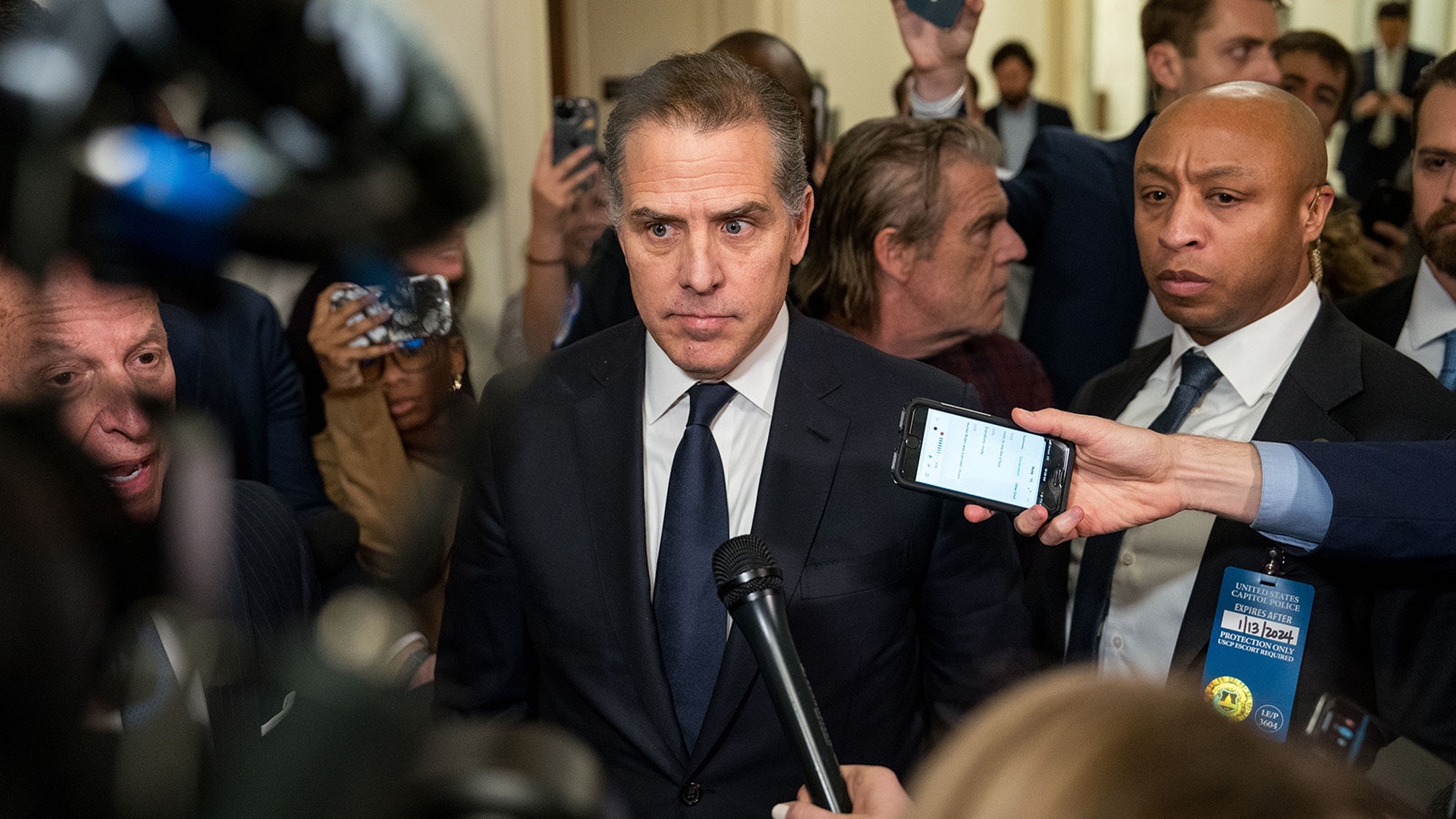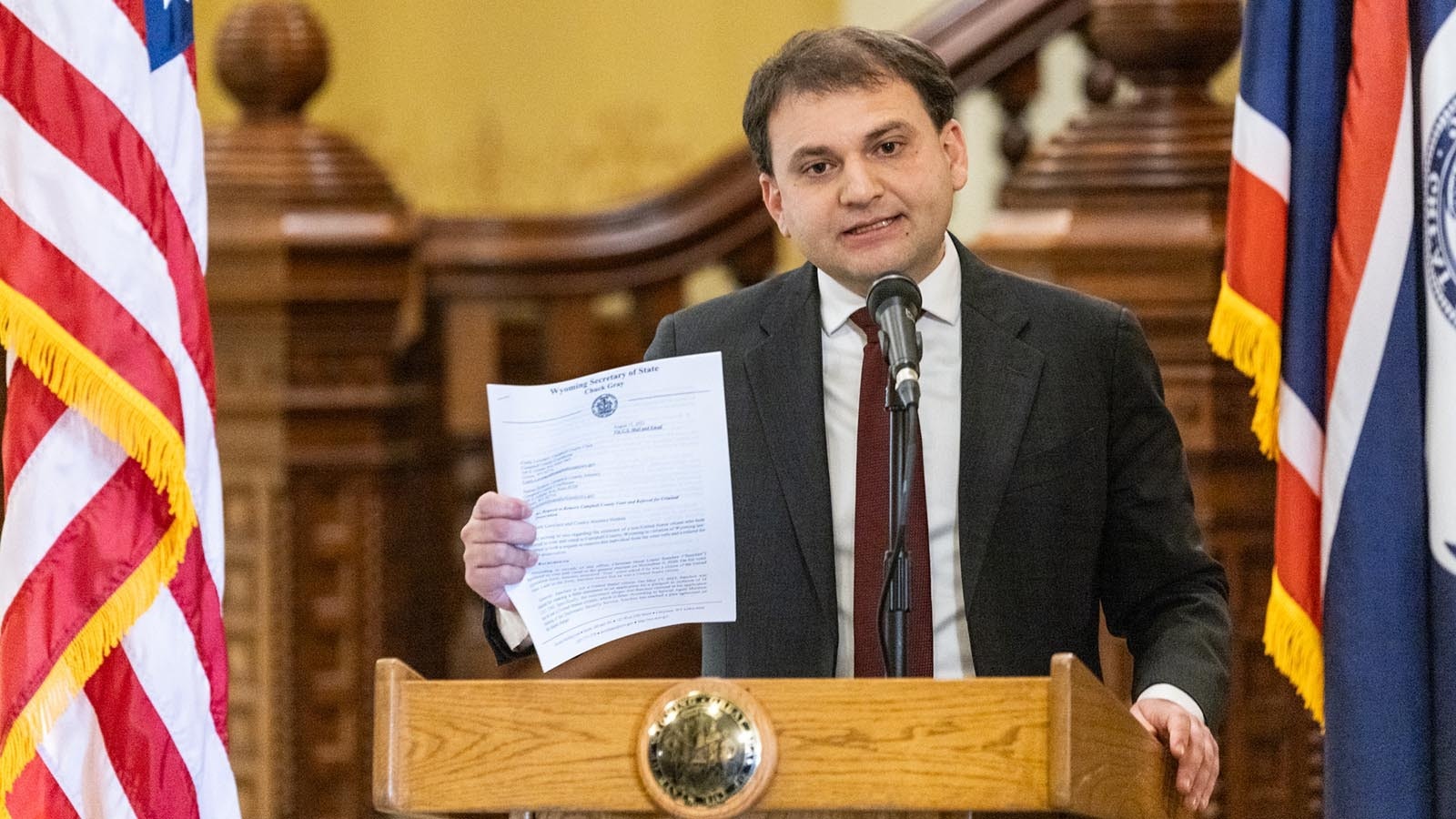The 10th Circuit Court of Appeals, which includes Wyoming, on Friday upheld a federal law barring drug users from possessing guns.
The appeals court didn’t say that the statute, 18 USC 922(g)3, is altogether constitutional, just that a lower court judge was wrong to proclaim it unconstitutional in this case.
This decision comes after the Fifth Circuit Court of Appeals chipped away at the law in a separate case by saying it unconstitutionally denied a marijuana user’s Second Amendment rights. That case is now before the U.S. Supreme Court.
Hunter Biden, President Joe Biden's son, is charged with that same law in a Delaware federal court. His case is ongoing.
Sorry, No
The Colorado-based 10th Circuit Court of Appeals, which also encompasses Wyoming, on Friday rejected Utah federal District Court Judge Jill Parrish’s June 2022 ruling deeming the drug-user and guns law unconstitutional.
The appeals court’s Friday ruling has two main parts:
First, the higher court said Parrish was wrong to allow a full constitutional challenge against the law in the first place. She should have determined, rather, whether the law was unconstitutional only as charged against this particular drug user, Jonathan Alexander Morales-Lopez.
That doesn’t bar future constitutional challenges against 922(g)3, it just corrects what this appeals court saw as the wrong approach to reviewing it.
Secondly, the appeals court took it a step further and declared that the law was applied constitutionally to Morales-Lopez, and his guilty verdict should be reinstated.
Drug User And Gun
Morales-Lopez was found near 5.7 grams of methamphetamine and carrying a stolen gun when arrested in 2020. He’d been acting as lookout while his friend robbed a Sportsman’s Warehouse in Midvale, Utah.
While Moralez-Lopez didn’t admit to using the methamphetamine officers found in their police car after his arrest, he did admit to using drugs one month earlier.
His attorney argued to the appeals court that this laid a murky evidence base for trying to convict a man who may not have used drugs recently. The attorney questioned when, if ever, a person would be able to buy a gun after eating a cannabis edible.
Meth, Though
The appeals court countered, saying it looks like Morales-Lopez was still a user at the moment of his arrest.
“The elephant in the room is the 5.7 grams of methamphetamine (found in the police car with him),” reads the Friday ruling. “And what was Defendant’s reason for possessing the methamphetamine?”
The other evidence by which the appeals court inferred that Morales-Lopez was still a “user” was:
- Morales-Lopez’s habit of using drugs and meeting up with drug dealers as recently as a month before.
- His being arrested for the theft with a man with whom he’d used drugs in the past.
- Police officers’ discovery of drugs in Morales-Lopez’s accomplice’s car.
Criminals Can’t Challenge This One
The appeals court said that because the law was constitutional as applied to Morales-Lopez, it wasn’t his business to claim it was unconstitutionally vague altogether.
How the law applies to everyone else shouldn’t be Morales-Lopez’s concern when the law fairly convicted him, the ruling adds.
In fact, defendants generally can’t challenge laws as unconstitutionally vague, “except in those rare instances where a legislature has enacted a statute which is so totally vague as to ‘proscribe no comprehensible course of conduct at all,’” says the ruling.
But the ruling says 922(g)3 is not vague enough to trigger that exception.
Clair McFarland can be reached at clair@cowboystatedaily.com.





